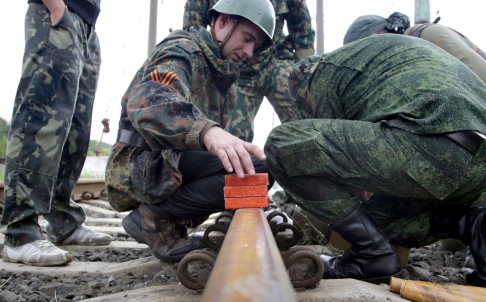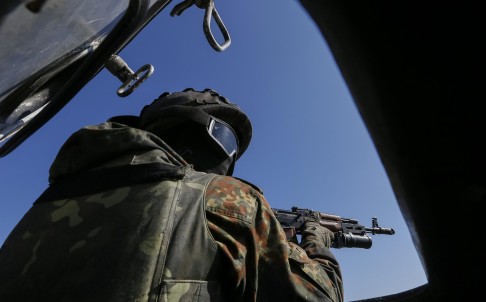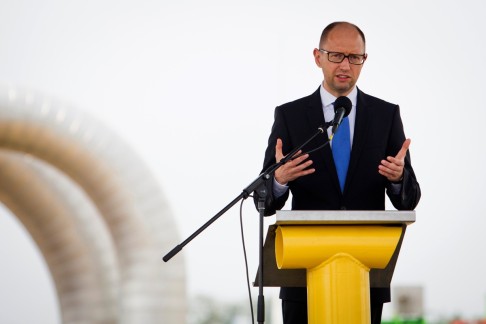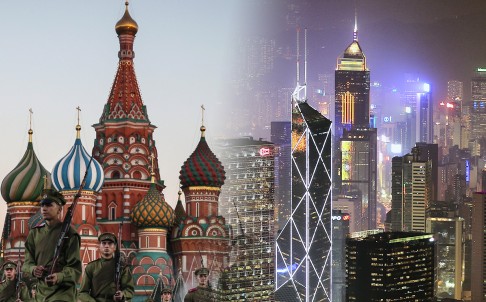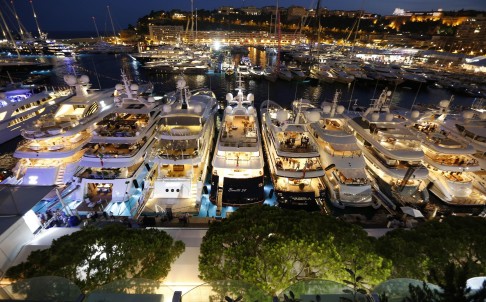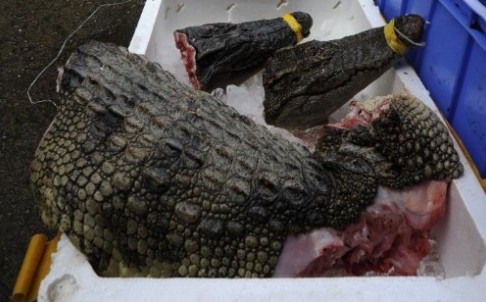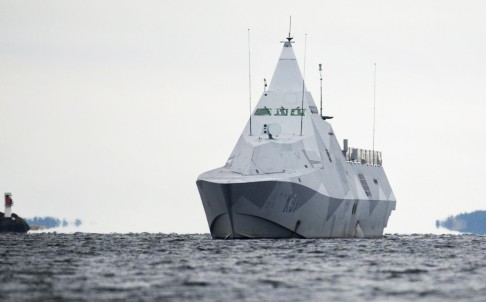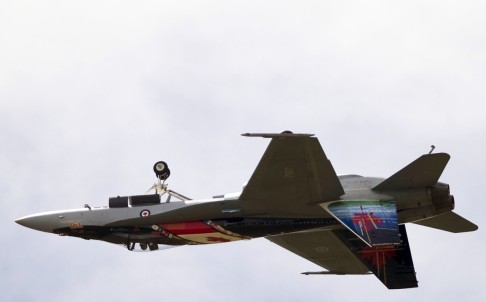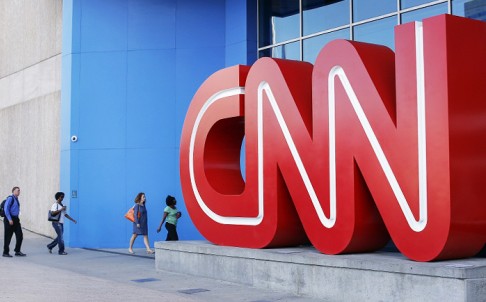- Joined
- Jan 11, 2011
- Messages
- 482
- Points
- 0

EU threatens Russia with new sanctions amid turmoil in Ukraine
Increased diplomatic pressure comes as pro-Russia mob seizes police building in eastern Ukraine
PUBLISHED : Monday, 14 April, 2014, 10:05pm
UPDATED : Tuesday, 15 April, 2014, 1:32am
Agencies in Donetsk

Russia's ambassador to the UN Vitaly Churkin (left) listens to the speech of the US ambassador Samantha Power (right) at the United Nations Security Council emergency session on Ukraine. Photo: AFP

An officer stops rival protesters fighting in Kharkiv. Photo: AP
The European Union threatened Russia with more sanctions yesterday over its actions in eastern Ukraine, which Britain said was being destabilised by Moscow.
The increased diplomatic pressure on Moscow came as a pro-Russia mob seized a police building and gunmen took control of a military airport in Russian-leaning eastern Ukraine, defying government warnings that it was preparing to act against the separatists.
The escalating crisis dominated talks among EU foreign ministers after Kiev threatened military action against the pro-Russia forces occupying government buildings in the east.
British Foreign Secretary William Hague said there was no doubt that Moscow was behind the destabilisation of eastern Ukraine.
"I don't think denials of Russian involvement have a shred of credibility," Hague told reporters, adding that the EU needed to discuss adding more people to a list of 33 Russian and Ukrainian officials targeted by EU asset freezes and travel bans over the Ukraine crisis.
The EU was prepared, if needed, to call a Ukraine crisis summit next week to toughen sanctions against Russia, France's foreign minister, Laurent Fabius, said.
Poland's foreign minister, Radoslaw Sikorski, said the EU must now agree how the list could be expanded.
Other governments were more cautious on sanctions, underscoring concerns in parts of Europe about antagonising a power with an energy stranglehold over the bloc. They put their faith in talks planned for Geneva on Thursday.
In addition to widening asset freezes and visa bans, the EU is discussing more far-reaching measures, such as restrictions on trade and finance with Russia, which Hague said should be prepared quickly.
Events in Ukraine added urgency to the talks. Dozens of angry men hurled rocks, smashed the windows and broke into a police station in the city of Horlivka, not far from the border with Russia, and flew the Russian flag from the building. Hundreds of onlookers outside chanted "Referendum!" and "Russia!"
One of the men directing the raid introduced himself as a lieutenant colonel of the Russian army to a line of policemen who had switched sides. He did not state his full name. The man, dressed in green camouflage uniform, instructed them to obey their new chief and to attach St George ribbons to their uniforms, the symbol of the pro-Russia protesters in eastern Ukraine.
The episode fed into accusations from the government in Kiev and Western officials that the protests were being instigated by the Kremlin and that some of the insurgents were Russian agents.
Later in the day, armed men in masks seized control of a military airport outside the city of Slovyansk, also in the Donetsk region.
The latest events echoed those in Crimea, which was annexed by Russia last month after key regional facilities were seized by Russian troops aided by local militiamen.
The diplomatic moves in Europe came a day after the UN Security Council held emergency talks on the situation in Ukraine.
Russia and the West locked horns over the escalating crisis in Ukraine, with Russian ambassador Vitaly Churkin saying "there has already been bloodshed and a further escalation must be swiftly stopped".
US ambassador Samantha Power accused Russia of waging a propaganda war and bombarding Ukraine with incitement and violence.
"This is the saddest kind of instability. It is completely man-made. It was written and choreographed in and by Russia," Power told the 15-member council.
Associated Press, Reuters, Agence France-Presse
Last edited:

